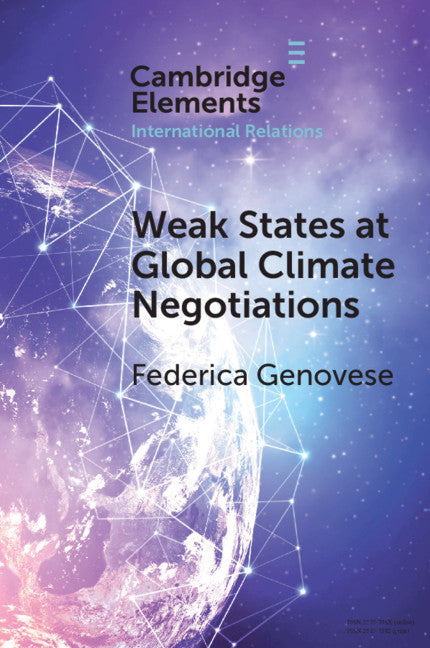Freshly Printed - allow 8 days lead
Couldn't load pickup availability
Weak States at Global Climate Negotiations
With new empirical evidence, the author pushes leaders of strong countries to concede power to weaker states on climate issues.
Federica Genovese (Author)
9781108790901, Cambridge University Press
Paperback / softback, published 30 July 2020
75 pages
15 x 23 x 0.5 cm, 0.13 kg
'… essential reading …' Charles B. Roger, Global Policy Journal
This Element provides an explanation for the power of weak states in international politics, focusing on the case of international climate negotiations at the United Nations. The author points to the pitfalls of assuming that weak countries elicit power from their coordinated salience for climate issues. Contrastingly, it is argued that weak states' influence at global climate negotiations depends on the moral authority provided by strong states. The author maintains that weak states' authority is contingent on international vulnerability, which intersects broader domestic discussions of global justice, and pushes the leaders of strong countries to concede power to weak countries. New empirical evidence is shown in support of the theory.
1. Introduction
2. When do weak states win global climate politics battles and why
3. Measuring preferences and success at global climate change conferences
4. Empirical evidence from global climate negotiations
5. Conclusion.
Subject Areas: Social impact of environmental issues [RNT], The environment [RN], Geopolitics [JPSL], International relations [JPS]


